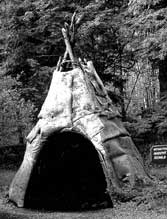Abenaki
Abenaki (or Abnaki) are a Native American tribe and First Nation. They are one of the Algonquian peoples, which are native to the northeastern region of North America, primarily in what is now the United States and Canada. The Abenaki are part of the Wabanaki Confederacy, a coalition that also includes the Mi'kmaq, Maliseet, Passamaquoddy, and Penobscot tribes. This confederacy is united by common linguistic, cultural, and historical ties, as well as a shared geographical region known as Wabanakik in the Algonquian languages, meaning "Land of the Dawn" or "Eastland," which covers parts of what is now Maine, New Hampshire, Vermont, and the Canadian provinces of Quebec and New Brunswick.
History[edit | edit source]
The Abenaki people have a rich history that dates back thousands of years, long before the arrival of European settlers. They were primarily hunters, gatherers, and fishermen, with a deep respect for the land and its resources. The arrival of Europeans in the 16th and 17th centuries brought significant changes to their way of life, including displacement, the introduction of new diseases, and conflicts over land and resources.
During the French and Indian War (1754–1763), many Abenaki sided with the French against the British, as they hoped to prevent further British colonial expansion into their territories. After the war, the British victory led to further encroachments on Abenaki land, pushing many to move northward into Canada or to join other Native American communities in the region.
Culture[edit | edit source]
Abenaki culture is rich and varied, with a strong emphasis on storytelling, music, and dance, which are seen as vital ways to pass on traditions and knowledge to future generations. The Abenaki also have a deep connection to the natural world, which is reflected in their spiritual beliefs and practices. They celebrate the cycles of nature through ceremonies and festivals that honor the earth, the seasons, and the animal spirits.
Traditional Abenaki crafts include basketry, beadwork, and birchbark canoes, which are not only beautiful but also hold significant cultural and practical value. The Abenaki language, which is part of the Algonquian language family, is an important aspect of their cultural identity, though it is considered endangered today.
Contemporary Issues[edit | edit source]
Today, the Abenaki people continue to face challenges, including issues related to land rights, cultural preservation, and the recognition of their status as a sovereign nation. In the United States, some Abenaki bands have received state recognition, which helps in preserving their culture and rights. In Canada, the Abenaki are recognized as a First Nation, with certain rights and privileges under Canadian law.
Despite these challenges, the Abenaki are working towards revitalizing their language and traditions, and they remain an important part of the cultural fabric of the northeastern United States and Canada.
See Also[edit | edit source]
Navigation: Wellness - Encyclopedia - Health topics - Disease Index - Drugs - World Directory - Gray's Anatomy - Keto diet - Recipes
Search WikiMD
Ad.Tired of being Overweight? Try W8MD's physician weight loss program.
Semaglutide (Ozempic / Wegovy and Tirzepatide (Mounjaro / Zepbound) available.
Advertise on WikiMD
WikiMD is not a substitute for professional medical advice. See full disclaimer.
Credits:Most images are courtesy of Wikimedia commons, and templates Wikipedia, licensed under CC BY SA or similar.Contributors: Prab R. Tumpati, MD




